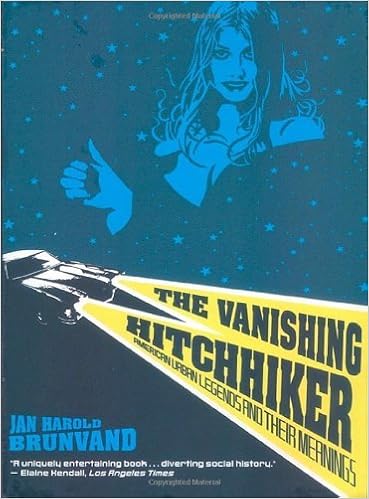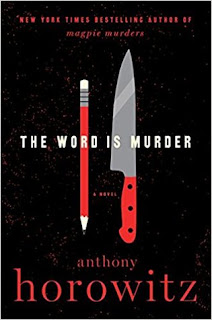It's October, and for the season I'll swim out alone to the literary lake's deep pool, where the water turns dark and you can't see the bottom and something just brushed against my feet.
Let's talk Shirley Jackson.
That Shirley Jackson, the self-proclaimed witchcraft dabbler and landmark American author. In 1948, Jackson wrote "The Lottery," among the most celebrated of short stories. In 1962's We Have Always Lived in the Castle, Jackson created a masterfully enduring--and deranged--lead character, Merricat Blackwood.
 |
| Original 1952 cover |
In between, Jackson pulled off The Haunting of Hill House (1959). Many consider it the finest haunted house novel, period--because it's not about ghosts. Don't misunderstand. At Hill House, things definitely go bump in the night. But the novel's genius is in its layers beneath, a study of what haunts our own minds.
The novel's synopsis: Dr. John Montague, an anthropologist secretly pursuing paranormal studies, craves hard proof that disbelieving peers would have to accept. To get it, Montague spends above his means to rent the notoriously haunted Hill House for the summer. Hill House, built 80 years earlier by the spiteful and greed-mongering Hugh Crain, who believed himself damned to hell. The sprawling house had only known dead wives and suicides and shut-in orphans. Constant tragedy and abandoned ownership led to village rumors of curses and the supernatural, or as Jackson wrote it, "whatever walks there, walks alone."
Montague won't dare name this whatever until he's documented it scientifically. To draw out activity, Montague invites potential guests with paranormal brushes or apparent psychic ability. Everyone roundly declines or ignores the invite except the "bohemian" artist Theodora--just Theodora--and our protagonist Eleanor Vance. After her father died, Eleanor had a run-in with poltergeists--or likely her own burgeoning psychokinesis. Whatever it was, it rained stones on the Vance home for days. Her family speaks no more of it. Rounding out the group is rakish Luke Sanderson, the owner's nephew sent to keep precautionary tabs on both house and guests--and to shake some adulthood into him. Luke is set to inherit Hill House.
The four settle in amid the suffocating gloom. The house is vile, Eleanor thinks on arrival, but we've already learned her mind runs amok on its own. Still, she's not wrong. Hill House is designed to confound with corridor mazes, rounded corners, and architecture built off-angle. Wallpaper patterns turn the eye dizzy. Cold drafts abound. Doors won't stay open, even when propped. Eleanor's rampant imagination is our lens, through her initial dread, her exhilaration to have stumbled upon friends, her surprise at a restful sleep and a sense of belonging.
And there's the novel's magic: belonging, where we do and where we don't.
Montague's invite is the escape Eleanor has waited to grab. To then, Eleanor hasn't made a single human connection in her thirty-two years alive. She hated her recently-deceased mother, who Eleanor nursed through a slow death, and Eleanor hates her sole surviving family member, the sister who keeps Eleanor as a nanny. A litany of doubts and assumptions blaze through Eleanor's head for every thought she risks sharing. Her calming ritual is a whispered saying that dear Mother taught, dear Mother who died on Eleanor's watch. "Journeys end in lovers meeting," a line Shakespeare wrote for
Twelfth Night's court fool.
What Eleanor really wants is to shut herself off from the world. On her drive to Hill House, Eleanor marvels at each New England cottage as a quaint shelter--if perfected with high walls and oleander hedgerows. Eleanor is clueless how stunted being locked away has left her, that her over-indulgence of someday dreams crowds out real human contact here and now. It's a safe and beautiful retreat--that beckons delusion and isolation if one rambles there too long. Eleanor has rambled there those thirty-two years. When others don't recognize her inner depth, out lashes her resentment-fueled temper.
Eleanor isn't someone to make angry. Even Hill House finds that out.
Hill House conjures manifestations in due course, but Jackson hardly bothers showing the ghosts. The only spectral event directly on the page is a vision Eleanor has beside the manor's brook, of a family enjoying a picnic. Otherwise, things stay corner-of-the-eye, and the nightly presence stays banging and giggling outside of bedroom doors. It's fear Jackson focuses on. Our houseguests are most afraid of what they might experience, and it stops them from flinging open doors and confronting what walks there.
As the manifestations grow more violent, Eleanor's psychokinesis becomes plausible--and formidable. Every supernatural incident in the novel can be pinned on Eleanor, be it a wild imagining or stress hallucination or her paranormal gifts. Whenever Eleanor is thinking of dear old Mother or has her pride wounded, Hill House lurches alive.
And it comes regularly for Theodora. Theo is the anti-Eleanor, elegant and confident and outwardly rebel. Eleanor needs a home and purpose, Montague needs peer acceptance, and Luke needs to earn his inheritance. Theo doesn't even need a last name. Theo only rushed to Hill House last minute after a major fight with her live-in "friend." My Nell, Theo dubs Eleanor as soon as they get acquainted. If Eleanor is finding Hill House more a home, Theo is ready to burn it to ashes.
Jackson danced around Theo's orientation and whether Theo and Eleanor have sexual tension or a sisters' bond. Either way, Jackson makes it clear Eleanor and Theo aren't up to each other's impossible standards. It's central to their isolation. Eleanor finds no one worthy of sharing her inner life. Theo can't speak her truth or let down her guard. She might've even been stripped of her family name.

As claustrophobic manor houses will do, soon friends are squabbling. Theo has a straight-razor wit and takes pleasure training it on Eleanor. Naïve Eleanor sees Theo as competition for Luke's attentions, although Eleanor isn't much into Luke anyhow. She's just casting about for a lovers meeting. Theo's real crime is growing familiarity, the latest domineering figure in Eleanor's life. Next thing, Theo's bedroom is smeared in a foul-smelling substance that could be ectoplasm. Later, as Eleanor is lost in that picnic vision, Theo senses a descending and never-shown horror that forces them to run as if their souls depended on it. Whether Eleanor summoned the horror is another thing left open.
It makes you wonder why exactly Eleanor's family kept her locked away.
The novel reaches its climax when Montague's wife arrives. Mrs. Montague is the real ghost chaser here, and she and her comic sidekick set about actually investigating Hill House. Up to then, Dr. Montague's methods involved journaling and afternoon cocktails and catching up on his reading. He's the father figure seeking to negotiate co-existence with Hill House. It hasn't worked. The house, or the charged environment, is changing the ad hoc family hour by hour, cycling them between fear and rationalization and euphoria at each violent disturbance survived. Nightmares have seeped into Eleanor's peaceful sleep now, something disembodied holding her hand. Hill House is awake, and this is what Mrs. Montague wants to call forth.
Mrs. Montague gets a fast answer from an entity calling itself: "Eleanor Nellie Nell Nell." In short order, Hill House is all buckling walls and banged doors. Eleanor disassociates and gives in to whatever stalks her imagination--her lover's meeting, at last. Eleanor wakes the next morning to find Theo, Luke, and Dr. Montague exhausted from a constant fight against Hill House. Meanwhile, new arrival Mrs. Montague didn't experience a thing.
In her waking dream, Eleanor can--or believes she can--sense activity across the grounds, down to the mice and blades of grass. She is a sprite losing coherence and playing dangerous games of hide and seek. Dr. Montague orders Eleanor to leave and never return. No appeals heard, just bags packed and loaded into her car.
 |
| 1963 film version |
Hill House won't let her leave, we think. Eleanor's melding into it was a gothic inevitability, we think. Eleanor has gazed upon the treacherous curve in the driveway, where Dr. Montague spoke of carriage accidents when past guests fled in terror, the same spot where Lady Crain died eighty years earlier. Eleanor is all detached smiles as she plays along as if to leave, all smiles thinking the hide-and-seek had just begun, all smiles when she swerves toward a tree. It's where her descent was always signaled to end.
Eleanor's dying thought is, "Why didn't they stop me?"
Regret. Confusion. Jackson spent 181 pages setting that trap. Eleanor seems finally aware she took her dreaming much too far. No one escapes themselves. Eleanor is and will be forever who she is, awkward Nell with the family baggage and mommy issues. Suicide might've been a supernatural pull or despair at her evaporated fantasy world. Eleanor dies haunted either way.
Seriously, though: Why didn't they stop her?
So untethered, Eleanor didn't need to be driving such roads on her own. Everyone understood that, and yet Dr. Montague insisted Eleanor leave alone. It was important, he claimed, and neither Theo nor Luke objected. This could've been basic psychology, Eleanor needing agency and a clean break. It could've been Hill House's influence. The others had been there as long as Eleanor, long enough to have the same warped judgment. Or it could've been fatalism, Montague believing anyone else in that car was needlessly doomed. More questions Jackson left floating.
But there's this: Several times previously, Dr. Montague promised Eleanor he'd shepherd her safely away if things ever came to it. Things did. He didn't.
 |
Shirley Jackson,
Wikipedia |
With Jackson, never discount cruelty as a motive. In "The Lottery," human nature lets horrors evolve into institutions, even of forgotten origin. In
We Have Always Lived in the Castle, families and whole communities can justify violence with speed and ease. Cruelty seeps throughout
The Haunting of Hill House. A cruel man built the place. A cruel mother raised Eleanor. Friends and family tear at each other. Jackson understood humanity to our blotched souls, the brimstone stuff we don't admit we're capable of. Jackson was so good at capturing this, she was scary.
Jackson was alternately imposing and feeling overshadowed as a Bennington faculty wife, despite her successes. Her health was failing when she came across records of an overly-academic 19th Century paranormal society. Well-intended but deluded work, to her opinion, and it inspired The Haunting of Hill House. The society's fixation on rationalizing phenomena tripped past an answer obvious to Jackson: Ghosts existed, as natural as you and I. Accept that, Jackson held, or let fear and ignorance remain more harmful than any spirit. Face these things head on, that's the Mrs. Montague approach. Understand it. Name it.
In fairness, Jackson didn't necessarily recommend that path. It's in her opening sentence: "No live organism can continue for long to exist sanely under conditions of absolute reality; even larks and katydids are supposed, by some, to dream." It's a warning. Seek ghosts or human nature if you must, but beware: True knowledge can be a terror staring back at you.





































